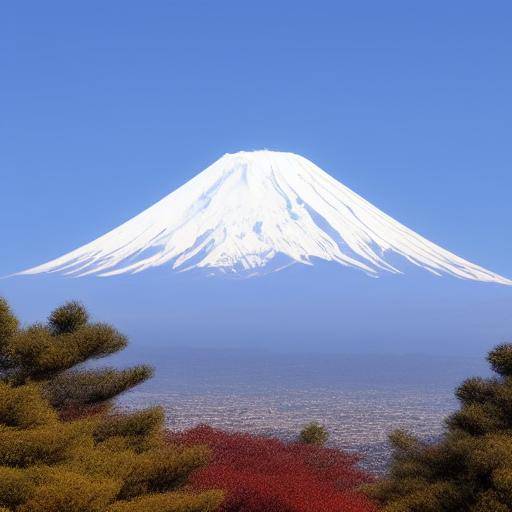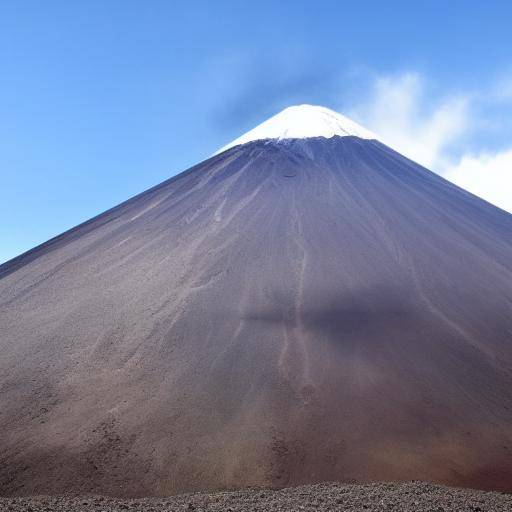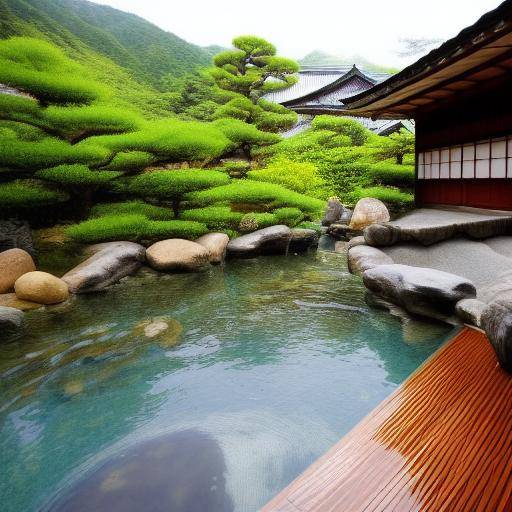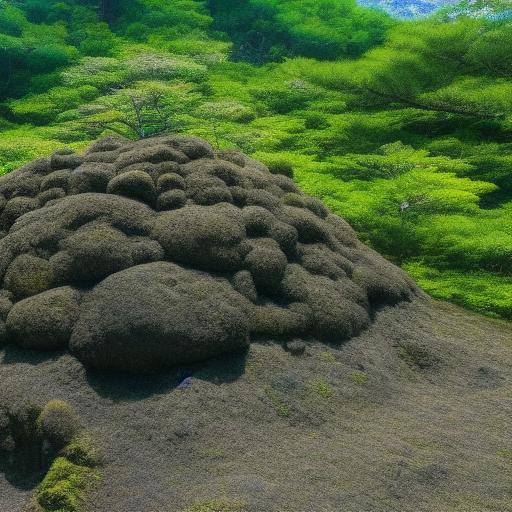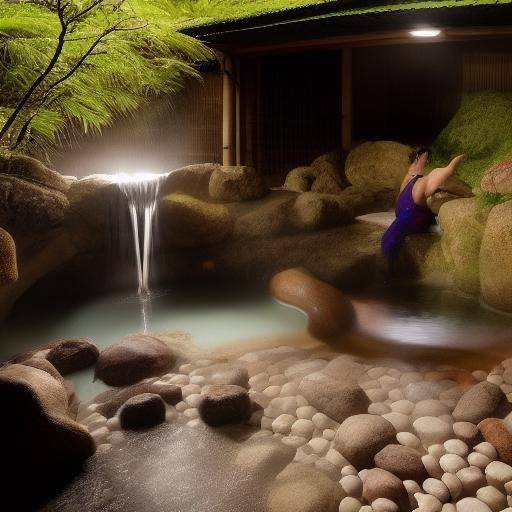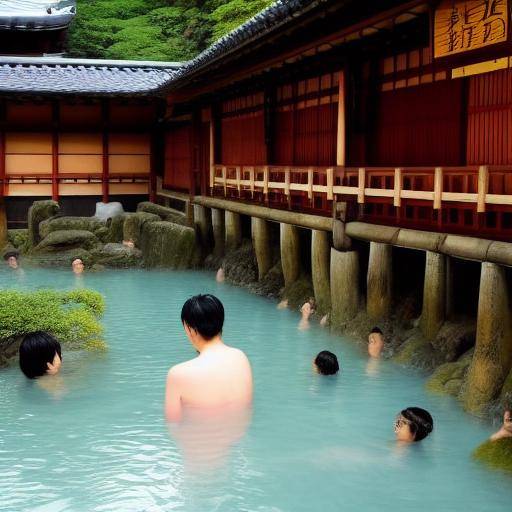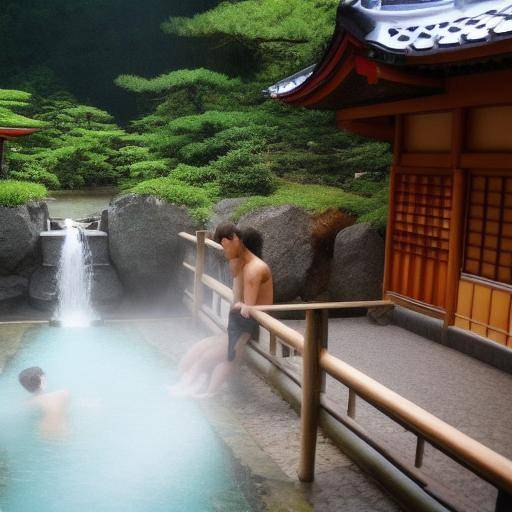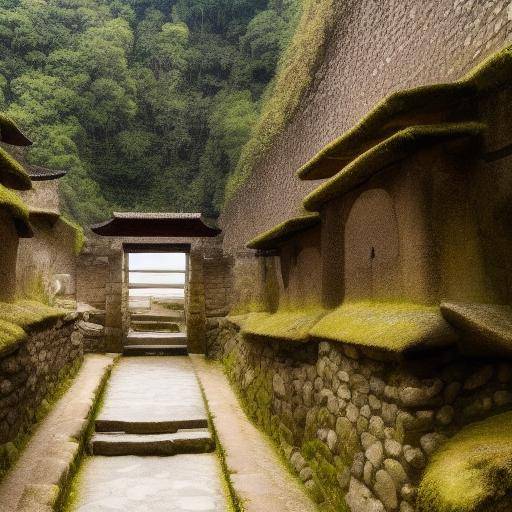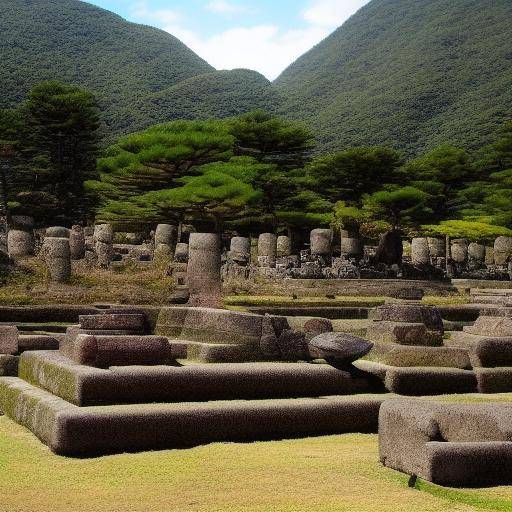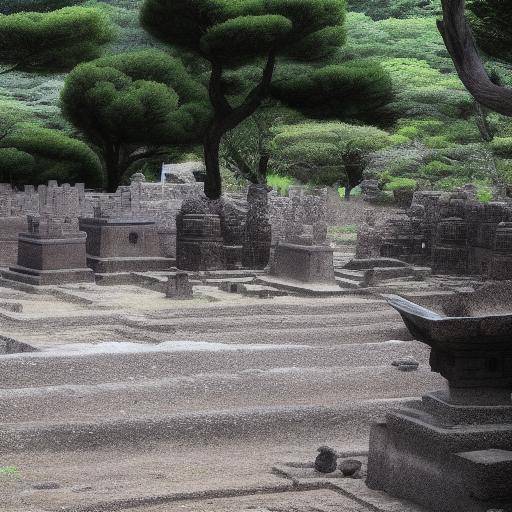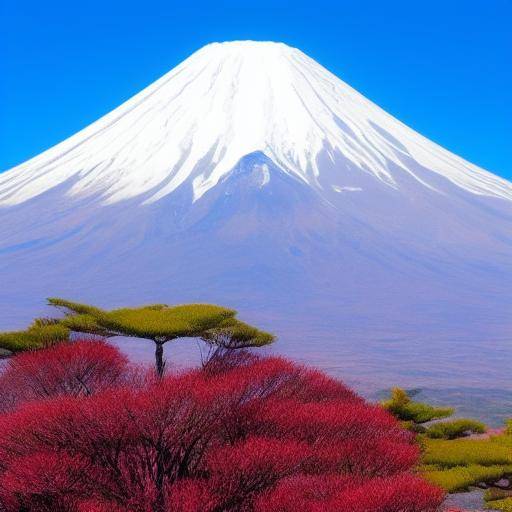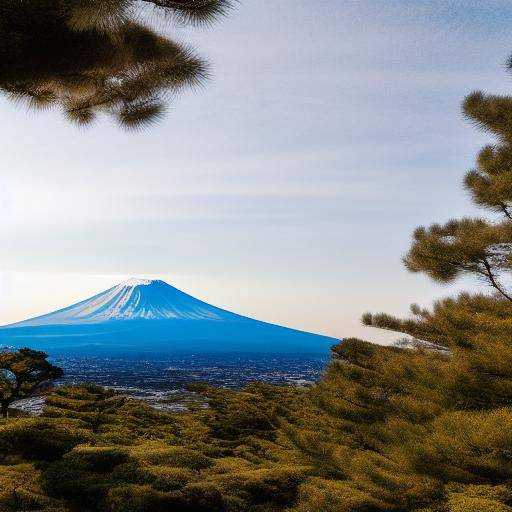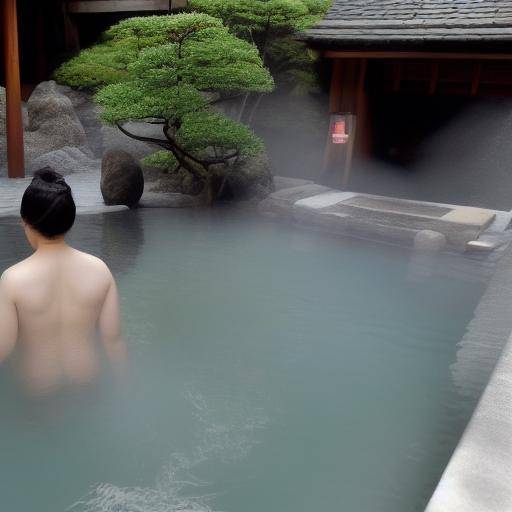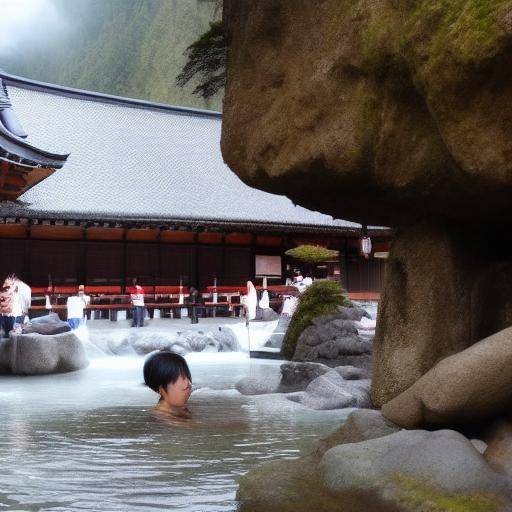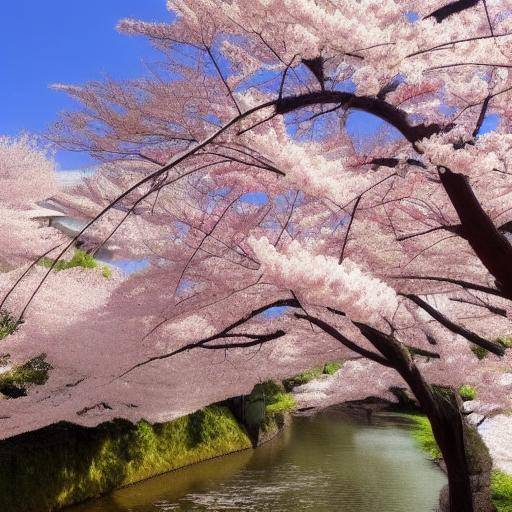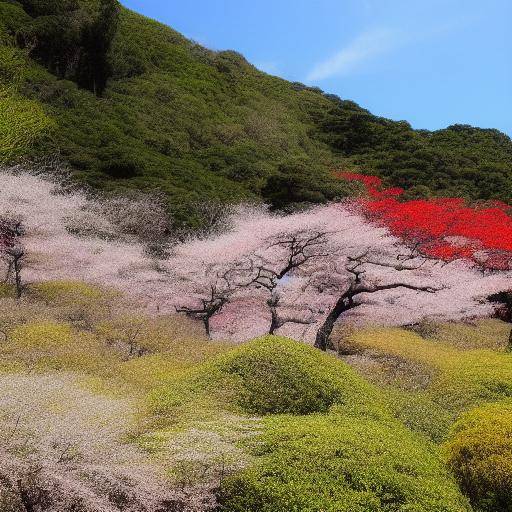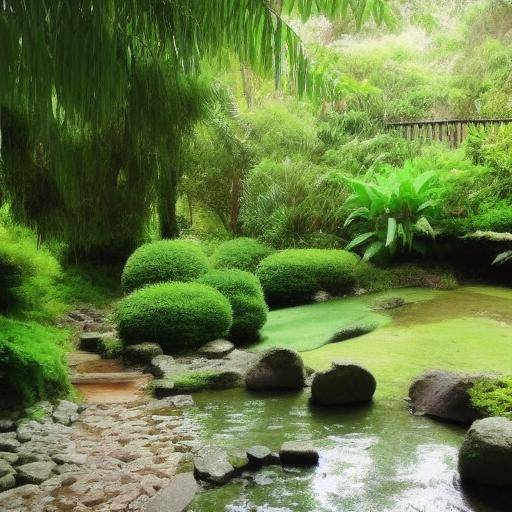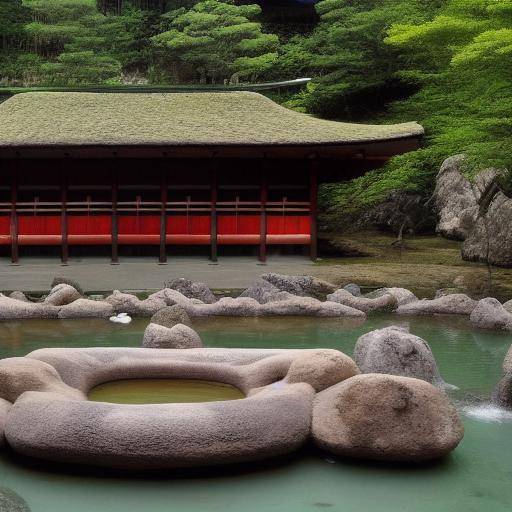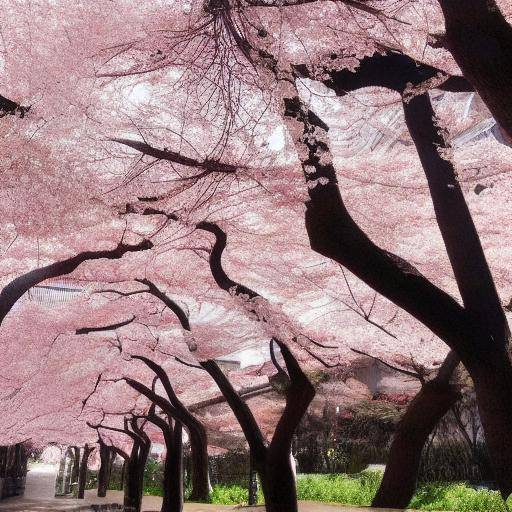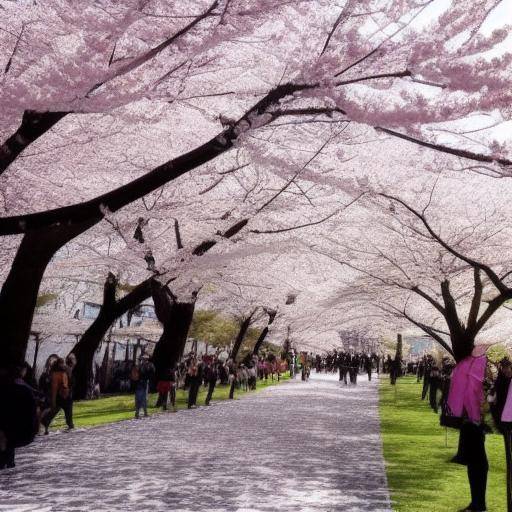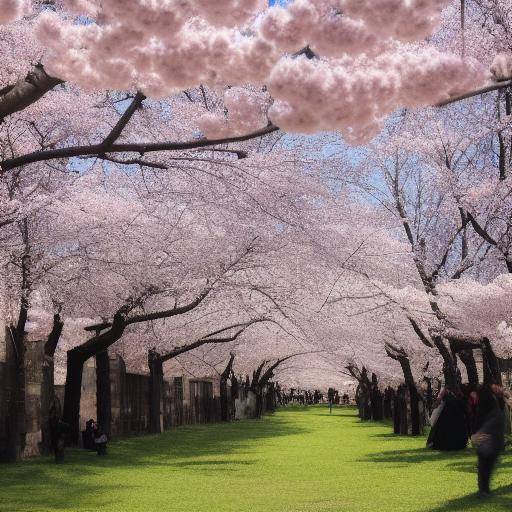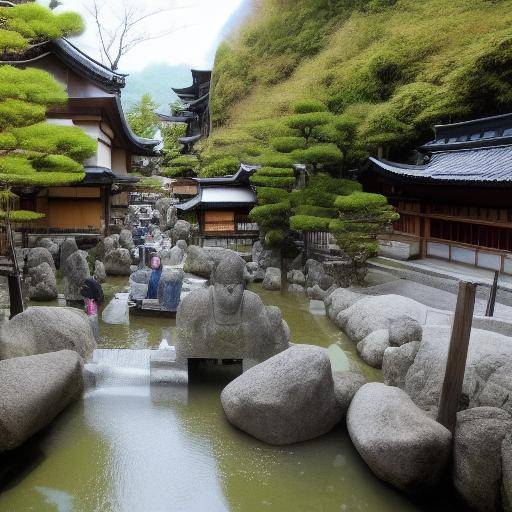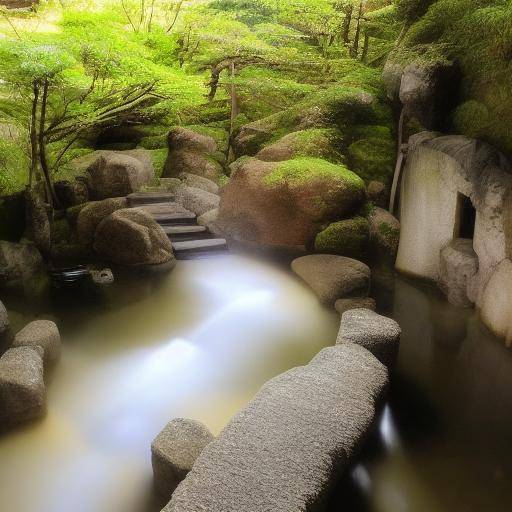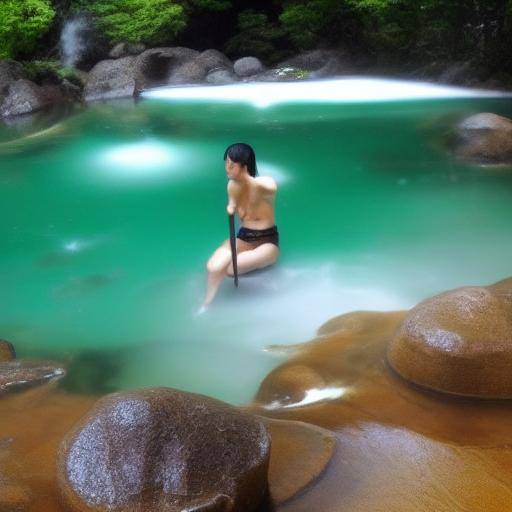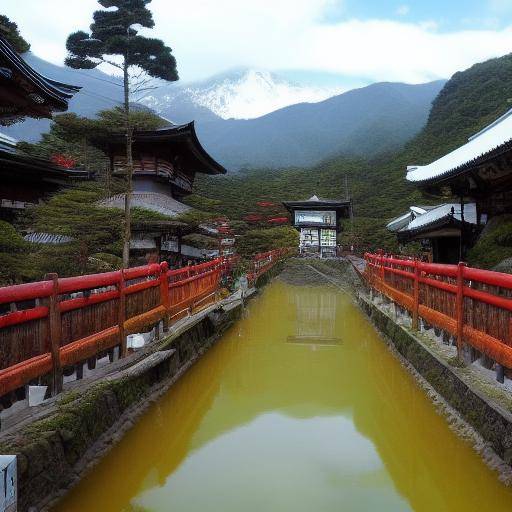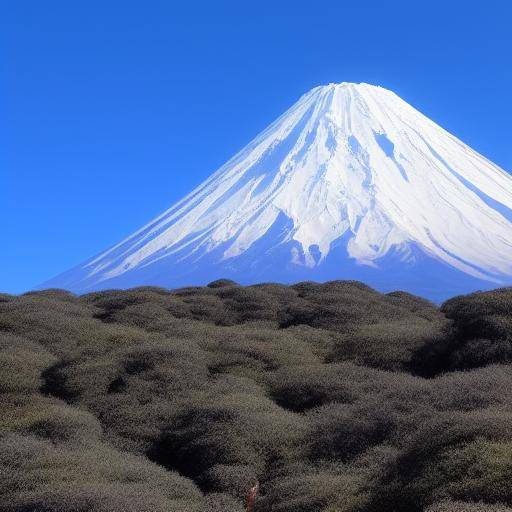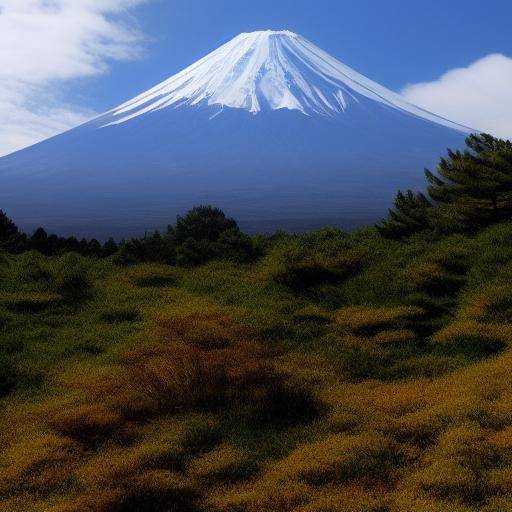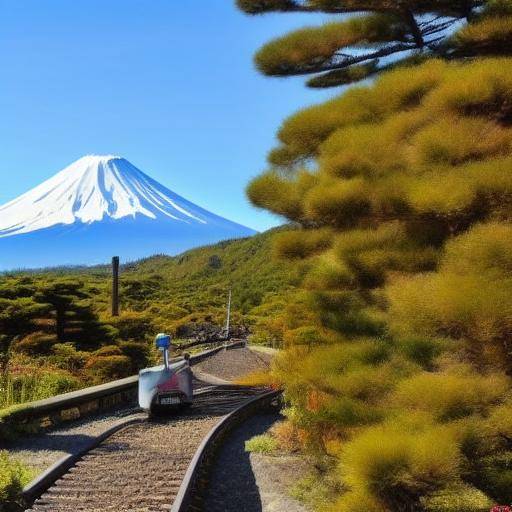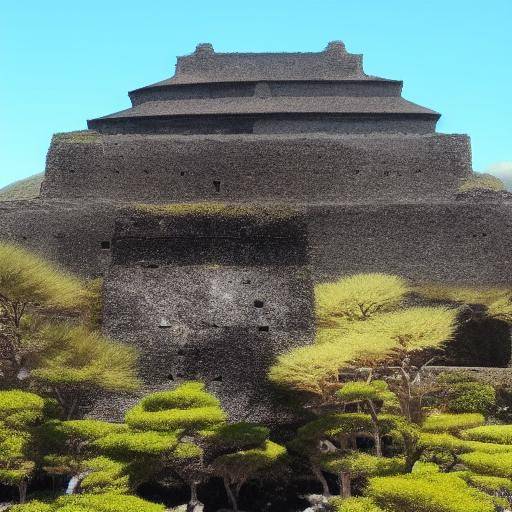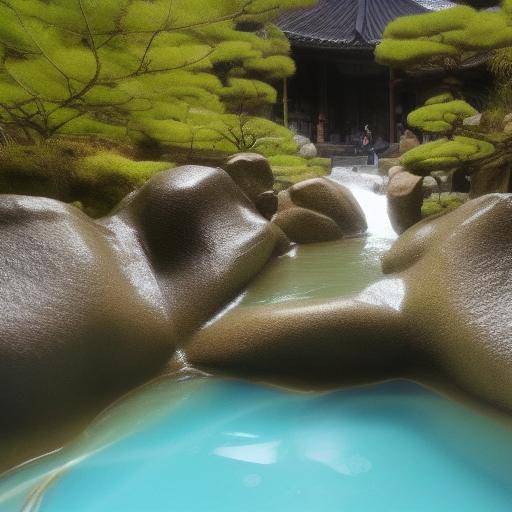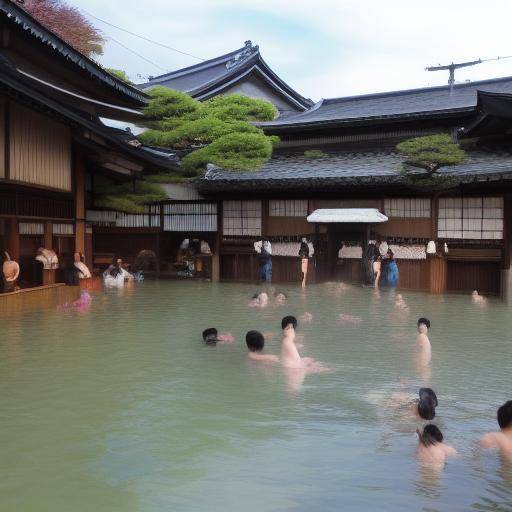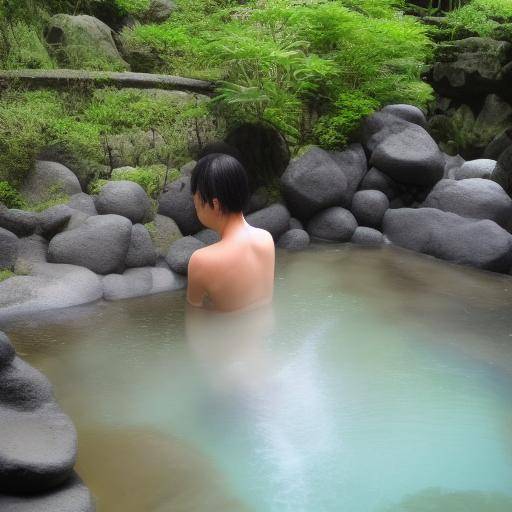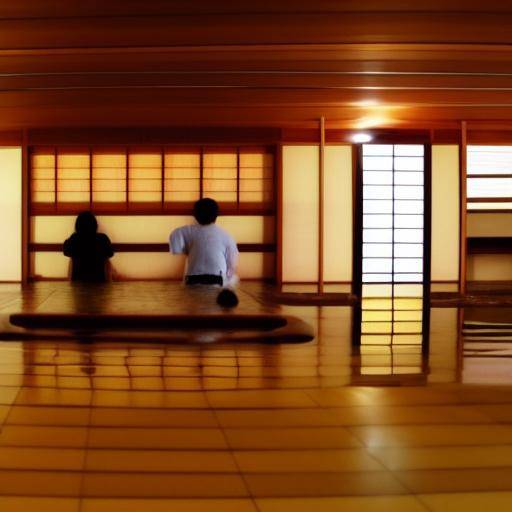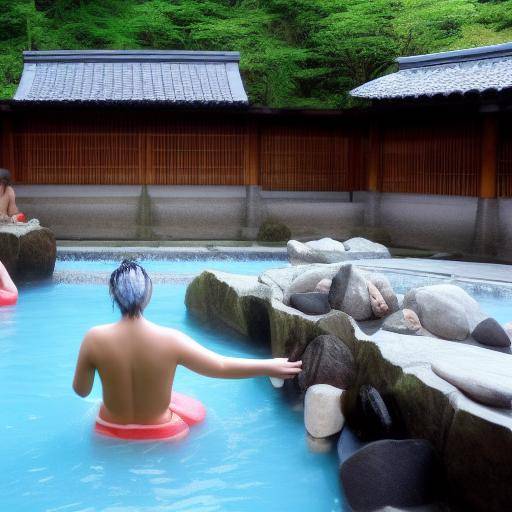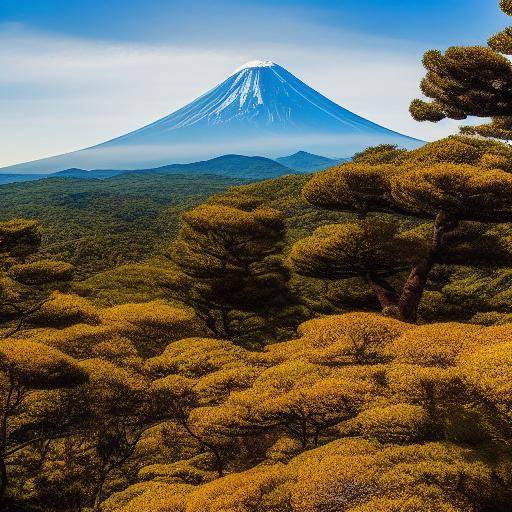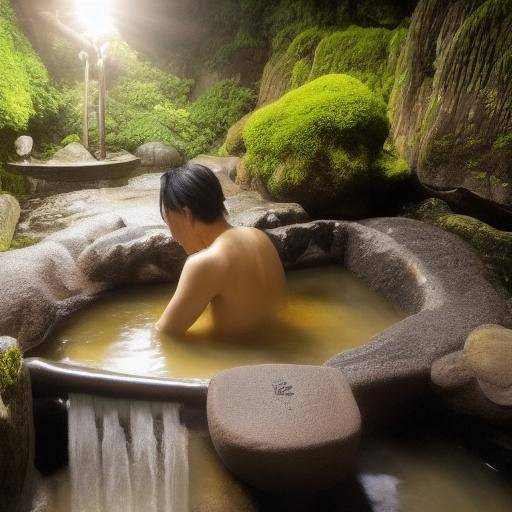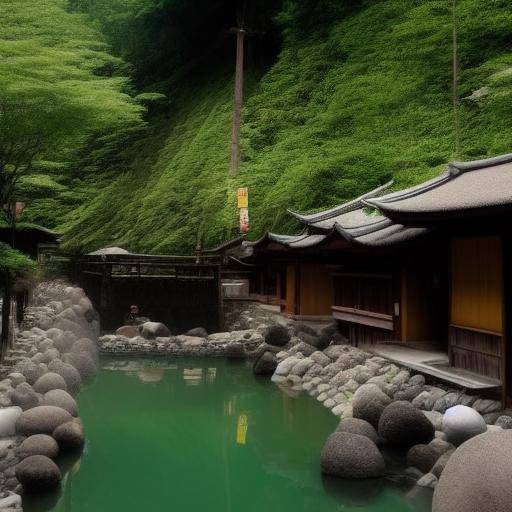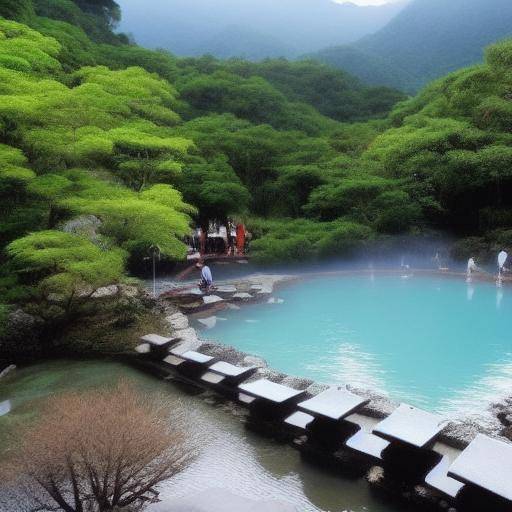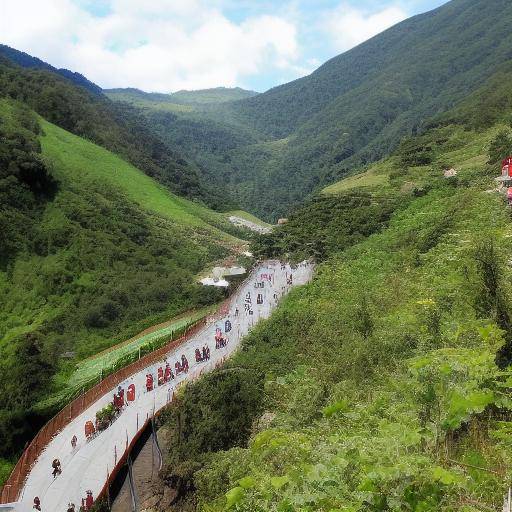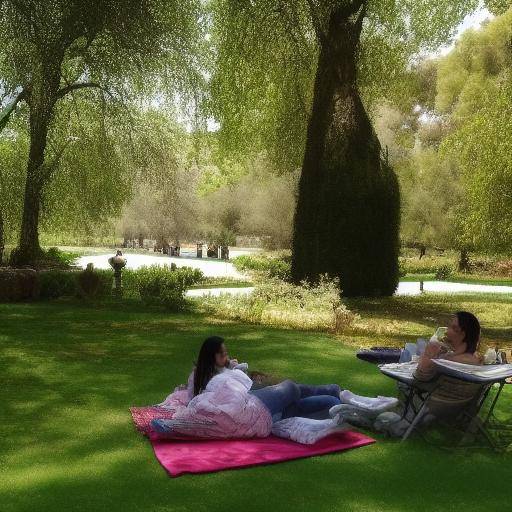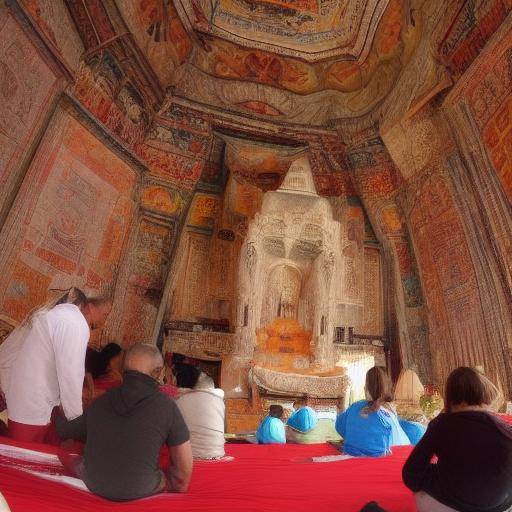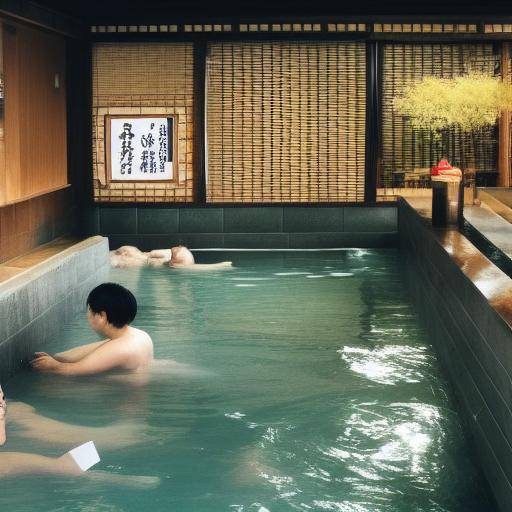
Introduction
Imagine immerse yourself in natural thermal waters, surrounded by serene landscapes and disconnecting from daily stress. This experience is part of the Japanese tradition, where onsen, or thermal baths, play a crucial role in the country's well-being culture. In this article, we will explore the history, benefits, practical application and impact of onsen on relaxation and Japanese culture. In addition, we will discover how the onsen have become a refuge for many people seeking relief and peace in an increasingly agitated world.
History and Background
The origin of the onsen dates back centuries, during the Jomon period. Since then, these thermal springs have played a significant role in Japanese culture. With the influence of Buddhism, the habit of plunging into onsen was popularized, considering itself a purifying practice both for the body and for the spirit. In addition, throughout history, the onsen have been social meeting points and healing places for various ailments.
Over the centuries, this tradition has evolved, adapting to different historical moments and cultural trends. From the construction of the first public baths to the creation of thermal spring resorts, the onsen have experienced a transformation that has led them to be not only a symbol of relaxation, but also a healthy lifestyle.
Analysis in Deep
The onsen not only offer a retreat for relaxation, but have also shown numerous health benefits. These benefits range from relieving stress and improving blood circulation to relieve muscle and joint pains. In addition, the natural environment in which the onsen are usually located adds an additional therapeutic component, contributing to the general well-being of those who visit them.
However, despite their benefits, the onsen also face challenges today. From sustainable water resources management to adaptation to safety and hygiene standards, the onsen industry is constantly evolving to meet modern demands without losing its traditional essence.
Comprehensive review
The application of the onsen goes beyond the therapeutic aspect, with tourist complexes that offer a wide range of services to meet the needs of visitors. From rituals of relaxation and meditation to spa treatments inspired by nature, the onsen have become exclusive destinations that combine the traditional with the contemporary.
In addition, the impact of onsen on Japanese culture transcends its immediate benefits, as they play a vital role in promoting tourism and promoting the connection with nature. This creates a virtuous cycle in which the preservation of the onsen contributes to the well-being of local communities and to the conservation of the natural environment.
Comparative analysis
Comparing the onsen with other forms of relaxation in Japan, such as yoga or meditation, highlights the uniqueness of diving into thermal waters as a practice rooted in Japanese tradition. However, the convergence of these practices offers a holistic vision of well-being, where the onsen are integrated with other methods to promote harmony between the body and the mind.
Practical Tips and Accessible Tips
If you plan to visit an onsen in Japan, it is important to know certain rules of label and behavior to respect the sacred tradition of these bathrooms. For example, it is essential to follow hygiene regulations, respect privacy and maintain a peaceful environment. In addition, making the most of the experience includes incorporating other activities, such as walking in the surrounding nature, enjoying local cuisine and participating in traditional ceremonies, which will further enrich your onsen experience.
Industry Perspectives and Expert Reviews
Experts on well-being and tourism have emphasized the importance of preserving and promoting onsen as an integral part of Japanese cultural identity. In addition, efforts have been made to integrate sustainable practices in onsen management, raising awareness of the importance of balancing tourism experience with the preservation of the natural environment.
Case Studies and Real Life Applications
Many cases exemplify how the onsen not only contribute to individual well-being, but also to local and regional economic development. The revitalization of certain areas thanks to the popularity of the onsen shows its positive impact on the community, attracting national and international visitors and providing opportunities for local business growth.
Future Trends and Predictions
As the world embraces a more holistic approach to well-being, the onsen are expected to continue to play a crucial role in the quest for harmony between body, mind and natural environment. In addition, greater emphasis is placed on sustainability, with innovative approaches that promote the conservation of natural resources in the context of onsen.
Conclusion
The onsen not only offer a relaxing experience, but also represent an invaluable link with tradition and nature in Japan. From their rich history to their role in promoting well-being and tourism, onsen encapsulate the essence of Japanese philosophy to find beauty in simplicity and connection with nature. By immersed in the onsen, visitors not only enjoy a therapeutic bath, but also immerse themselves in a cultural legacy that transcends time.
Frequently asked questions
What is the cultural meaning of the onsen in Japan?
The onsen have a profound cultural significance in Japan, as they represent both a purifying habit and a place of relaxation and connection with nature. This tradition has been passed from generation to generation, being a symbol of well-being and balance.
What are the health benefits of onsen diving?
The health benefits of onsen include improving blood circulation, stress relief, muscle and joint relaxation, and skin purification. These therapeutic benefits, combined with the natural environment, contribute to the overall well-being of the body and mind.
Is there a specific protocol when visiting an onsen in Japan?
Yes, it is important to follow certain label rules when visiting an onsen in Japan. This includes showering before entering the bathroom, respecting the privacy of others, keeping a quiet environment and, in some cases, avoiding the use of swimsuits.
Are the onsen accessible to foreign visitors in Japan?
Yes, many onsen are open to both local residents and foreign tourists. However, it is important to verify the specific rules of the onsen regarding entry protocols, due to differences in admission policies in some establishments.
What is the difference between onsen and sitting in Japan?
The onsen are natural thermal waters, while the seated are public bathrooms that use artificially heated water. Both experiences offer health and relaxation benefits, but onsen have a deeper connection with tradition and nature.
What is the best time of the year to enjoy the onsen in Japan?
The best time to enjoy onsen depends on individual preferences, although many people enjoy visiting them during the winter to experience the unique feeling of plunging into thermal waters while snowing outside. However, any season of the year offers a special experience in the onsen, as each season highlights the unique beauty of the nature surrounding these thermal baths.
With the wealth of their history, the health benefits they offer, their role in well-being and tourism, as well as their link to tradition and nature, the onsen represent an incomparable cultural treasure in Japan. Dipping into the onsen is much more than enjoying a therapeutic bath; it is getting into the very essence of Japanese philosophy and living an experience that nourishes the body, spirit and soul.
In short, for those who want to explore Japan's rich well-being culture, plunging into the onsen is a transformative experience that provides insight into the very essence of life in this fascinating country.
This concludes our journey through the onsen and their role in the culture of well-being in Japan. We hope that this exploration has inspired you to consider the onsen as an integral part of your next journey in search of balance and relaxation.

